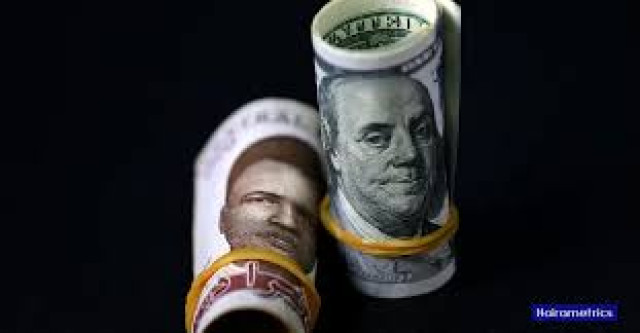The Naira strengthened to 1,339.33/$ by the end of trading on the official window on Monday, marking a 9.68% increase from Friday’s rate of 1,482.81/$.
According to FMDQ data, which oversees the Nigerian Autonomous Foreign Exchange Market, the daily turnover decreased to $180.80m from $556.25m on Friday, indicating a 67.50% decline.
On Monday, the naira traded at an intraday high of N1,501 and an intraday low of N1,310 to the dollar at the official market. Meanwhile, at the black market, the naira traded at N1,520, showing a 1.32% depreciation from Friday's rate of N1,500.
On Friday, the domestic currency ended the week with no change against the dollar, showing a slight strength at the official foreign exchange market after a period of decline.
The Central Bank of Nigeria Governor, Olayemi Cardoso, referred to this as seasonal fluctuation during the post-Monetary Policy Committee meeting press briefing in Abuja last Tuesday.
He mentioned that the recent instability in the foreign exchange market is due to seasonal demand, which results from the interaction between demand and supply in a freely operating market system.
In the latest data from the CBN, it has been revealed that the demand for foreign exchange for importation and other forex-related activities has decreased by 42% year-on-year.
The analysis of foreign exchange utilization across various sectors showed that $21.12bn was allocated in 2023 to 19 sectors and services.
This amount represents a 41.9% reduction from the $29.98bn allocated in 2022, as reported by the CBN's quarterly statistics.
The process of forex allocation involves the distribution of foreign exchange by the CBN to different sectors of the economy, such as individuals, businesses, and government agencies, based on specific criteria and priorities.
In June 2023, the CBN implemented a floating exchange rate system for the naira, unifying all forex market segments, which resulted in a significant domestic currency depreciation against the US dollar and other global currencies.




















